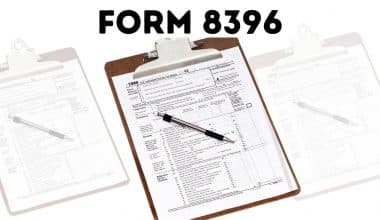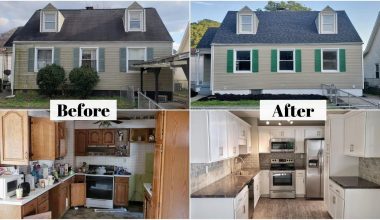Investing in real estate can be profitable, but you must be aware of the risks. Bad locations, low incomes, a high rate of vacancy, and also people with problems are all major risks. Other risks to consider include a lack of cash, hidden structural issues, and the fact that the real estate market is difficult to predict. This is why I’m giving you a guide to investing for beginners, which explains how anyone can become a real estate investor, despite the many challenges and risks that come with it, and still make a lot of progress with little or no money.
Who Is a Real Estate Investor?
A real estate investor is an individual that invests capital in real estate properties. They can also buy and sell properties, change property values, collect rents, and lobby for profit.
Furthermore, real estate investors have the choice to work alone as individual investors, with a partner, or as part of a network of investors.
If the real estate agent has enough knowledge and experience, companies, brokerages, or other individuals may hire the real estate agent to manage their real estate property portfolio, or even advise them on a real estate property venture scheme. A real estate investor’s primary concern is the inflation of land value.
A real estate investor monitors the real estate market to build long-term wealth. So they tailor their plan of action as per their particular targets and the risks attached.
Real Estate Investor Overview
Real estate investors operate from a position of financial strength because they invest surplus cash flow in real estate to boost returns and keep credit card debt low while paying off their car and school loans.
These investors follow buy-and-hold techniques for the long term. Over the years, their respective real estate portfolios should generate rental income and property gains at competitive returns.
Strategically, holding real estate investments for long periods reduces financial risk because you won’t have to sell during down markets. Long-term investors may want to create a legacy by passing on real estate to heirs to continue generating family income.
In addition to this, some real estate investors look into flipping properties. Flipping is a high-risk, high-reward strategy where investors buy and sell real estate over short periods of time. They spend money on improving the real estate property with new fixtures and appliances.
The real estate property is then sold six months after its purchase date, at a profit. Condo flippers successfully operate within up-and-coming neighborhoods, where real estate demand is high.
How to Become a Real Estate Investor
Becoming a real estate investor would require an individual to take some necessary steps. An overview of how an individual can become a real estate investor includes:
#1. Learn About Real Estate
As an upcoming or new real estate investor, learning the basics of real estate is the first step in understanding the best way to fund your real estate ventures.
The individual should consider taking some real estate classes and even taking exclusive classes on real estate ventures to learn the ins and outs of the real estate industry. This would help the person find the right investment opportunities and avoid wasting money on less promising real estate ventures.
#2. Make a Real Estate Investment Plan
Without a doubt, developing a real estate investment plan will help an individual intending to become a real estate investor know the appropriate way to invest his/her fund.
An excellent real estate investor would have a general idea of the kind of ventures to make, what working capital to invest in, and also the level of profit to expect.
Determine whether to make high-risk or low-risk real estate ventures, lay out the perfect finance scheme, take an active or passive approach, and consult a real estate advisor to see if the available capital is suitable.
Not only could you decide to go into wholesaling real estate properties, house flipping, buying rental real estate properties, multi-family, or commercial real estate, but also into real estate investment trusts (REITs), or crowdfunding.
#3. Build Your Real Estate Investing Network
Building your real estate investing network is always an indispensable step in climbing to the top of the real estate world.
In other words, you will need to connect to other real estate investors and other people in the real estate industry and build trust.
The more of a real estate investing network you cultivate, the more real estate opportunities they will send your way. Below are people you should add to your real estate investing network.
- Buyers.
- Sellers.
- Private Money
- Hard Money.
- Wholesalers.
- Bird dogs.
- Investor-friendly Contractors
- Investor-friendly Title Companies.
- Investor-friendly Real Estate Agents and also,
- Investor-friendly Real Estate Attorneys.
#4. Do Your Due Research With the Local Market
As an upcoming real estate investor, you should ensure to pay close attention to the housing market forecasts and also stay up to date on all the latest news regarding real estate ventures.
If you are investing in residential real estate, study the up-and-coming neighborhoods, what is for sale, and what isn’t selling. You should ensure you pay attention to what renters are leasing, where, and when.
More so, if you are investing in commercial real estates like residential apartment complexes or storefronts, consider the foot traffic of an area and the neighborhood profile. Stay abreast of all the latest laws and regulations on real estate development, like zoning, property taxes, and availability.
#5. Consider Passive Real Estate Investment
There are many ways to invest your money in real estate, similar to how you would invest in the stock market. For example, you can buy a share in a real estate investment trust (REIT), which is a company that owns and manages real estate. If REITs are publicly traded, anyone can invest in them to make passive income.
Real estate mutual funds are one more chance for real estate investors to contribute cash to a group of real estate ventures estimated to have great possibilities by specialists. Wealthy entrepreneurs sometimes use crowd-funding to finance real estate ventures while hiring others to manage the properties.
How to Become a Real Estate Investor With No Money
There are slim chances of becoming a real estate investor with no money, but it is doable. If you follow the suggested steps below, you will be en route to becoming a real estate investor with no money.
#1. Buy a Home as a Primary Residence
If you want to invest in real estate with no money, consider a Veteran Affairs or the United States Department of Agriculture loan. After buying a home, live there for at least a year and turn the home into a rental property.
Remember that equity building through real estate investing also includes the homes you live in. The down payment and credit score required for a residential home is always less rigid than for real estate venture property.
Living in your real estate investment property first is a great way to get around rigid lender rules for real estate investment properties.
#2. Buy a Duplex, and Live In One Unit While You Rent Out the Other One
Getting a two-unit duplex is possible when you apply for an FHA loan. The down payment for an owner-occupied duplex is approximately 3.5%. Not only can you live in one unit, but you can also rent out the other unit for extra cash.
#3. Create a Home Equity Line of Credit (Heloc) On Your Primary Residence or Another Investment Property
If you have a larger amount of equity in your residential home, many banks will give you a HELOC, and this can help you create a line of cash in hand for about 70–80% of the current equity in your currently owned real estate property.
You can use a Home Equity Line of Credit (HELOC) to flip your real estate properties short-term, and can also be used as a zero-down mortgage to finance a rental property.
A Home Equity Line of Credit (HELOC) is a second mortgage with an interest rate that changes based on prime plus 2%. It may require a principal payment while interest rates are low, have no closing costs, and be closed quickly with a drive-by appraisal of your property, which some banks will do for free.
#4. Ask the Seller to Pay Your Closing Costs
You could earn a small monthly cash flow by asking the seller of the real estate property you are purchasing to pay a buyer’s closing cost to incentivize a sale. For this step to be successful, you have to offer the full asking cost or close to the asking cost for the real estate property.
#5. Invest in Real Estate Through Lease Option
You can also become a real estate investor through the use of the lease option. Through the lease option, you can charge the buyer a monthly or yearly premium, in the form of higher rental payments.
#6. Hard Money Lenders
If you’re out of money for real estate, you can also apply for a hard money loan. These loans are easy to get, have fewer requirements, and don’t require corporate procedures. Hard lending requires closing costs, application fees, appraisal fees, and other closing costs.
How to Become a Real Estate Investor With Little Money or No Money
There are slim chances of becoming a real estate investor with little money, but it is achievable. These Following steps will help you to become a real estate investor with little or no money.
- Applying for Microloans.
- Framing Associations to Put resources into real estate with Minimal expenditure.
- Applying for Home Equity Loans.
- Trade Houses.
- Applying for SBA Loans for Investing in Commercial Real Estate.
- By Claiming Portions of real estate Venture Trusts.
Real Estate Investing for Beginners
Real estate investing for beginners involves buying, managing, selling, and renting properties for profit. Its development also improves properties as an investment strategy.
Key things to note about real estate investing for beginners include;
Rental Properties
Investing in a real estate rental property not only makes you a landlord but also enables you to make your money by collecting rent on the rental properties. The rent cost would depend on the location of the rental property.
Flipping Houses
Investing in house flipping simply means the short-term buying and selling of properties after repair and updates are done on the property for a higher cost than the acquired cost.
REITs
A real estate investment trust (REITs) is created when a company or trust is established to use your money to acquire, operate, and sell real estate properties.
Real Estate Investment Groups
These companies or groups will buy or build a set of buildings and allow you as an investor to buy the properties, thus allowing you to join the group. The company helps you manage and take care of maintenance, advertising, and finding tenants.
What skills are necessary for real estate investing?
- Recognizing Cash Flow
- Understanding the Market
- Understanding the Law
- Creating a Niche
- Communication
- Patience
- Work Delegation
- Recognizing Customers
How do real estate investors generate money?
- Though increase in the value of property value.
- Rental income generated through property leasing.
- Earnings derived from a company’s operations that rely on real estate.
What are the real estate investing rules to make money?
To determine when you’ll begin making money, multiply the home’s worth by 5% and divide the result by 12. Renting is the superior financial option if the rent on a comparable rental property is cheaper than the cost of purchasing. Renting would not be a sensible financial decision in this circumstance because the monthly cost would be greater than the cost of purchasing.
What are the risk in real estate investing?
- Structural Risk
- Average Market Uncertainty
- Financial Loss
- Risk in Assets
- Legislative risk
- Potential Dangers Caused by Their Location
In Summary
If you want to be a successful real estate investor, you should start with the advice we’ve provided for beginners who are serious about investing. Everything you’ve learned thus far has prepared you well for this moment. Go get it!! My next real estate tycoon.
How to Become a Real Estate Investor FAQs
How Much Does a Real Estate Investor Make?
It ranges from $70,000 to $125,000.
Who are real estate investing for beginners?
Real estate investing for beginners includes rental properties, house flipping, REITs, Real Estate Investment Groups, etc.
Related Articles
- How To Start a Real Estate Business: Step-by-step Beginners Guide
- REAL ESTATE CERTIFICATION: Top 10 Picks & How To Obtain Them
- REAL ESTATE PORTFOLIO: How to Build a Real Estate Portfolio
- REAL ESTATE BUSINESS: A Definitive Guide for Beginners (+ How to start tips)
- Real Estate Business Cards: Best Ideas, Templates, Samples & Quotes to Close deals Faster
- HOW TO START A PROPERTY MANAGEMENT COMPANY: Tips for Starting a Property Management Company






